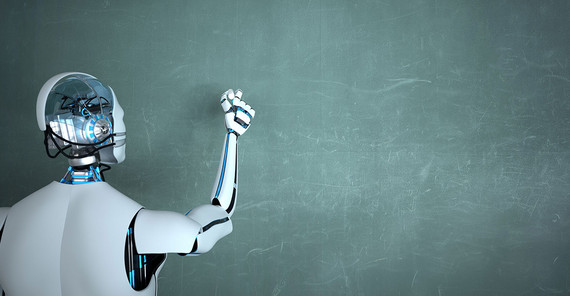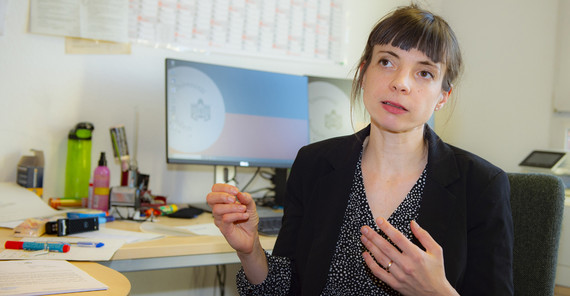Does AI belong in the classroom?
AI definitely belongs in the classroom – if it is used responsibly, in compliance with data protection regulations, and embedded in didactic concepts. AI-based technologies offer an opportunity to provide pupils with tailored support based on their individual learning requirements and to relieve the burden on teachers at the same time. For example, learners can evaluate their own solutions, check and assess AI-generated arguments, or expand their skills in a self-organized way using customized learning paths. Teachers can use AI-based technologies for lesson planning and for the creation of individualized learning materials. However, the use of AI also poses challenges that we need to discuss.
Where can we already see AI in use?
ChatGPT is probably the most prominent example – the Brandenburg Ministry of Education, Youth, and Sports held an expert discussion on the use of ChatGPT in the classroom. AI guidelines for schools have also been published in July 2023, which contain important information:
https://mbjs.brandenburg.de/aktuelles/pressemitteilungen.html?news=brandenburg_06.c.817401.de (German only).
How can AI change teaching in schools?
AI-based technologies are associated with numerous innovations that are changing schools and teaching. For example, pupils can learn in a more self-organized way and learning processes are becoming more individualized. Learners receive personalized feedback on their solutions, can use AI-based systems for dialogues on learning materials in order to ask questions independently and deepen their knowledge, and receive tasks and materials that are in line with their individual performance level. However, we will always need teachers to accompany this process in a competent manner.
Are there limits to AI use?
There are numerous ethical issues associated with the use of AI in the classroom. First and foremost, we must talk to learners about the fact that AI-based systems can reflect stereotypes of people whose data was used to train them. Another challenge is the fact that information coming from AI-based systems needs to be double-checked – it is important that learners as well as teachers reflect on such aspects when dealing with AI-based systems.
What role does AI play in education research?
As education researchers, we are interested in the extent to which AI-based systems can actually boost pupils’ skills, motivation, and enjoyment of learning – and what support pupils need from teachers when working with AI-based systems. Another important topic is the extent to which learners with a higher or lower performance can receive the best support when learning with AI-based systems without exacerbating education inequalities. We had discussed this topic extensively based on digital distance learning during the pandemic. And equal opportunity in learning continues to be an important topic in education research, even when it comes to AI in the classroom. For me as a motivation researcher, it is important that learners do not simply acquire knowledge when they learn with AI systems, but that they are motivated to use their knowledge in different contexts. Conveying this motivation to learn is an important task for teachers and can be fostered, above all, through social interaction.
How can the teacher-training program prepare future teachers for their new teaching partner and help them use it correctly?
In our education studies seminars, we often consider the use of digital media and AI-based technologies as a cross-cutting topic – in other words, pre-service teachers are encouraged to engage with digital tools and AI-based systems, relate them to seminar topics, consider how they could use them in the classroom, and discuss ethical issues. There is also a special “Digital Education” module, for which Prof. Dr. Katharina Scheiter is responsible and in which master’s students in the teaching degree program focus on digital technologies in the classroom.
On September 15, you will discuss AI-based technologies in schools and teaching with colleagues, including Professor of Digital Education at the UP, Katharina Scheiter. What will this event be about?
We will discuss the opportunities and challenges of AI in schools with Prof. Dr. Katharina Scheiter (Chair of Digital Education; University of Potsdam), Prof. Dr. Niels Pinkwart (Chair of Computer Science Education / Computer Science and Society, and Vice President for Teaching and Studies; Humboldt University Berlin) and Regina Schulze (Grootmoore Secondary School; Hamburg). I look forward to the discussion on research findings and practical implications for schools on the topic of AI in teaching and schools.
Further information on the conference (German only):
https://www.uni-potsdam.de/de/aepf2023/index
Further information on the research of Prof. Dr. Rebecca Lazarides:
https://www.uni-potsdam.de/de/schulpaedagogik/lazarides-1


